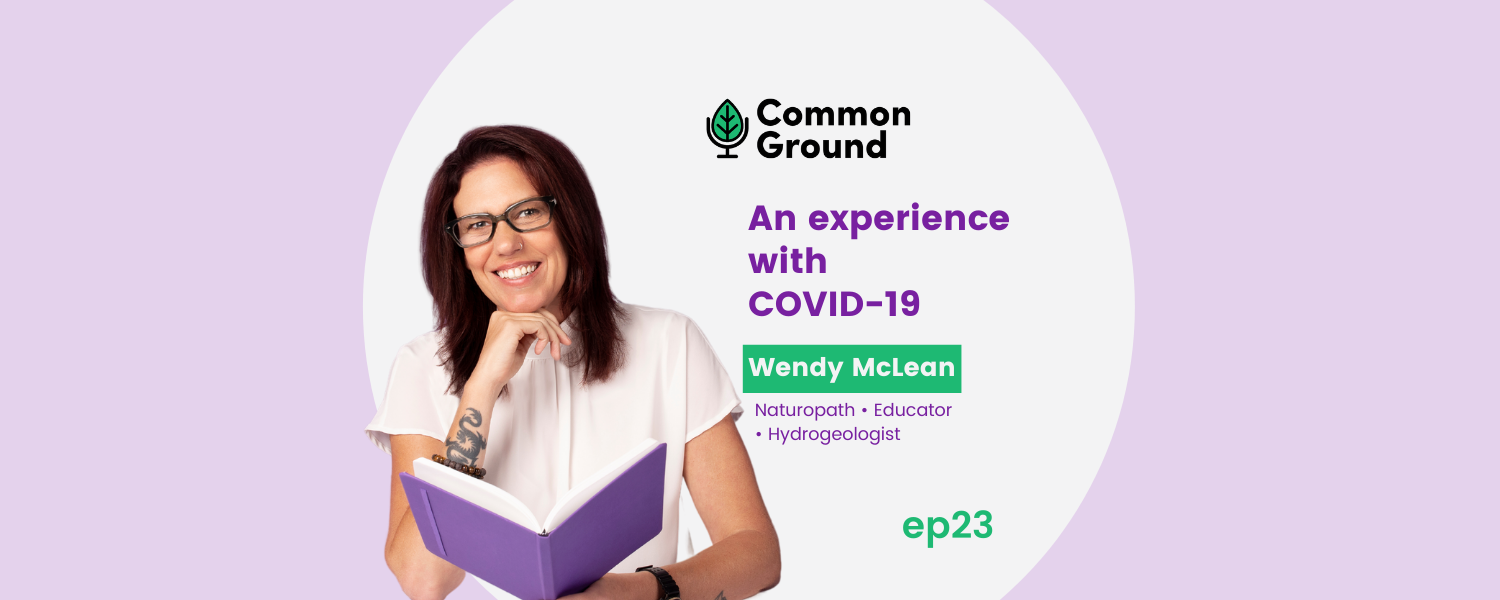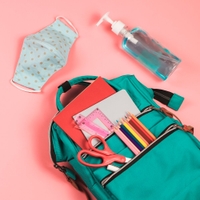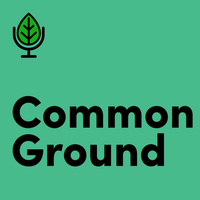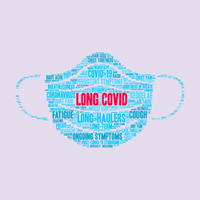
Listen on Amazon music | Apple Podcasts | Google Podcast | Spotify
Jacqui Fahey (00:06): Welcome to Common Ground, a podcast series discussing new research and interesting projects in the field of complementary medicine. Hello, my name is Jackie Fahey, head of education at vital.ly.
vital.ly is digital platform, a health professional resource and a distribution service all in one.
Firstly, I'd like to begin by acknowledging the Gadigal people of the Eora nation as the traditional custodians on the land on which we gather here. I would also like to pay my respect to their elders both past, present, and emerging.
In this episode today, we shall be speaking with Wendy McLean. Notice the name. Wendy is one of our educators at vital.ly and is open to sharing her recent experience with having COVID-19. Thanks for being on Common Ground today, Wendy.
Wendy McLean (00:52): Thanks, Jacqui. It's quite interesting and good to be on the other side.
Jacqui Fahey (00:56): Yeah. Change of seats. We're also excited to share that we are in our new studio today recording this. So thank you for your patience with some of the sound issues we've had. We are onto it.
So back to our episode today, COVID-19. With recent surges in COVID-19 over the past couple of months, there have been many queries as to the various lifestyle, herb, nutrient and food interventions that can support your immunity for pre, during and post SARS-CoV-2 infection. So Wendy given you are also a naturopathic practitioner, we thought it'd be very interesting to hear about your experience with COVID-19 and working with the herbs, nutrients and foods that may or may have not helped you during it, your time with COVID and post-COVID. So thank you for being open for sharing this today.
Wendy McLean (01:45): Thanks Jacqui. I have to say it wasn't particularly pleasant getting COVID. But you know, a lived and learned experience that I am more than happy to share with the community. And so first up I was taking a few different herbs and key immune nutrient before I got sick. Now I am a vegan and I do try and have a balanced whole food diet and try and get my key nutrients from diet; however, in times of stress and, you know, it can be physical stress or, you know, an immune challenge, you do need a bit of extra support. And I unfortunately recently had a black mold exposure a few months prior. So I was still recovering from that. So, the nutrients that I was taking most consistently were vitamin C, zinc, and vitamin D.
Now vitamin C, I was taking at about one gram per day. Vitamin C, it's a powerful antioxidant, but it also is important for both parts of our immune system. So our innate immune system, which is our first line defense and then our adaptive immune system, which is our B and our T cells.
Wendy McLean (02:58): And so there are studies that are showing that if you have a low vitamin C status that does increase your susceptibility to respiratory infections. And also when you get a respiratory infection that further depletes your vitamin C levels. So, it is a bidirectional relationship, and it does highlight that we need to maintain adequate levels.
I was taking zinc as well. Now zinc is a great immunomodulator and it does have anti-inflammatory and antiviral effects. And again, it works on those different parts of our immune system. And if you have a deficiency of zinc, there is enough evidence to show that it does weaken your immune system and again, increase your susceptibility to things like respiratory infections. So, in fact, about 16% of all respiratory infections worldwide have been linked to a zinc deficiency.
And then I was taking vitamin D. Now again, I try just incorporating vitamin D through lifestyle.
Wendy McLean (03:58): So getting out in the sun. However, we are in La Nina, the weather has been pretty poor in Sydney over the last few months. So potentially I am not getting enough or as much as I normally would from the environment. So I did choose to do some supplementing with vitamin D and vitamin D it has these immunomodulatory effects, it's also an anti-inflammatory and it also is antiviral. And I think, you know, there's enough evidence well, again, the evidence is controversial, but there was a recent meta-analysis looking at vitamin D in acute respiratory tract infections and it was shown to be effective for reducing severity and particularly in people that are very low in vitamin D. And in that meta-analysis, they were looking at doses between around four hundred to one thousand IU for up to 12 months.
And then I just had my basics really. So making sure I had adequate levels of magnesium or intake of magnesium and my B vitamins. And again, magnesium, maybe we often overlook it as an immune nutrient, but it's involved in 600 enzymatic reactions in the body, including those contributing to inflammation and immune responses.
Jacqui Fahey (05:17): So, yeah, to clarify. So these were the herbs and nutrients you took before.
Wendy McLean That's right, Jacqui.
Jacqui Fahey Okay, interesting. So when COVID hit, what were the symptoms that you experienced and, and how long did they last?
Wendy McLean (05:29): Yeah, Jacqui, the first symptoms I experienced were actually the fever and the intense body ache. And that came on really quickly during the night, one night and I was having these really crazy lucid dreams as well. Real fever dreams. I thought potentially at first that I might have had heat stroke, or I was dehydrated because I'd had an intense training session in the day, during the day, a three-hour training session, and it was a really hot and humid day. And I thought maybe I hadn't had enough water. But by the next morning I had the full upper respiratory symptoms and congestion, and I actually had the gastrointestinal symptoms. So I had the diarrhea as well. And so, the fever it lasted a few days, the body aches a few days and the gastrointestinal symptoms, but it was really, for me, the upper respiratory symptoms. And I think that's because I had had that previous mold exposure as well on top of it.
Yeah. And it's quite interesting because my husband got it as well, four days after me and his symptoms were a little bit different. He'd had the intense headache, almost like a migraine and really nauseous as well.
Jacqui Fahey (06:46): So, oh gosh, that sounds really full on. So what herbs and nutrients helped you during this time and, and why did you choose them?
Wendy McLean (06:54): Yeah, so the herbs and nutrients, I didn't have all of the ones on hand that I would've liked. So, some of them were guided by what was available. And also I was trying to choose ones that I had read some evidence for as well, whether that be traditional evidence, just for immune support or evidence specifically for, for this, for the COVID-19. So I continued with vitamin C but I did up the dose and I was just taking small doses regularly throughout the day. So probably getting up to around four or five grams. And again, there is evidence to show that high doses of vitamin C might decrease duration of the common cold symptoms. So that was part of my thinking. There have been a few studies looking at, at it specifically in COVID-19, or more so I think intravenous or high dose intravenous vitamin C, which has had some positive effects, particularly in people with sepsis.
Wendy McLean (07:57): However, there isn't that much evidence for, for using it directly for COVID-19 and the study results are mixed. I also upped my zinc intake to about 75 milligrams a day. Now again, I was basing it on evidence for the common cold. So there was a systematic review showing that zinc lozenges at greater than 75 milligrams a day reduced duration of the common cold by up to 33%. There are, again, you know, a few studies emerging specifically for COVID-19. And I think one of the positive effects that has come out of this is recovery of taste and smell in those who have lost. So I found that interesting. I, I didn't lose my taste or smell but my partner did.
Jacqui Fahey (08:46): Okay.
Wendy McLean (08:48): Then I chose palmitoylethanolamide or PEA. And I was dosing at about 1.8 grams a day. So, PEA is a substance that we produce in our body. It's an anti-inflammatory substance, it's also in food. So things like peanuts and, and sunflower oil, and a lot of people know PEA for pain and inflammation and particularly there’s a lot of research around nerve pain. And some people might not be familiar, but some of the earliest research was actually into using it for the common cold. And so in the 1970s, there were six quite large clinical trials that were done and looking at it as both a prophylaxis and treatment for the common cold and influenza with positive results. I had it in my cupboard. I that's why I threw it into my arsenal as well. Yes. And again, there's been one preliminary study in looking at it in COVID and again that was on the loss of taste and smell.
Jacqui Fahey (09:55): Very interesting.
Wendy McLean Yeah. And a few other things. Being a naturopath, I did have a few things on hand. So I went my beta-glucans. So the beta-glucans are from medicinal mushrooms, algae, those kinds of things. And so they had the beta 1-6 sorry, the beta, yeah, beta 1-6 glucans, which have the immunomodulating effects and they have been studied particularly in upper respiratory tract infections and had positive effects on reducing symptom severity.
I took quercetin as well. So, it's a dietary flavonoid and it's a powerful antioxidant, anti-inflammatory and again, with some immunomodulating effects. So I added that one in.
And then n-acetyl cysteine at about two grams a day. So NAC has a long history of use in respiratory conditions, things like chronic obstructive pulmonary disease and you know, it's an antioxidant, a precursor to glutathione, it's anti-inflammatory. So it's really, and I thought, really indicated for me with that upper respiratory symptoms and I almost felt like potentially I had some kind of secondary bacterial infection or, you know, just congestion and biofilm formation in the sinuses. So it helps with mucus.
Jacqui Fahey (11:21): It does doesn't it.
Wendy McLean It does. Absolutely. Yeah. So I had that and because I had the gastrointestinal symptoms, I actually introduced just a multi-strain probiotic with Saccharomyces in it. And that really helped, I think, with calming down those gastrointestinal symptoms.
And I was obviously trying to do some steam inhalations to, to clear the sinuses with eucalyptus oil.
And then I was quite fortunate. My, these symptoms lasted for two weeks and the end of the second week I got a herbal tonic specifically for the upper respiratory conditions. So I had things like mullein and eyebright in there. I had Nigella in there as well and some ribwort, and also I had Japanese knotweed, which is a powerful antioxidant and there's more and more evidence, you know, emerging that mitochondrial dysfunction and oxidative stress is linked to COVID. So that's always, you know, addressing the antioxidants is a good way to go. So I think that was about it.
Jacqui Fahey (12:33): And so what about, you've mentioned steam inhalation. So what diet and lifestyle interventions helped?
Wendy McLean (12:42): Yeah. I have to admit rest is best. I, I was resting for, I was in bed for about six days. It really did quite hit me and I didn't have much of an appetite, so I actually did find eating quite difficult. And, and we say, as naturopaths, get your bone broths into you or whatever, you just don't have the energy, right? Yes. Yeah. So I, I was trying to just eat small meals to try and keep my energy up. And also I, I had a vegan protein powder as well, so really just trying to keep up my nutrition that way.
And keeping hydrated was also really important. Firstly, having the fever but also having the gastrointestinal symptoms.
And then it really was just slowing down. I'm a very active physical person. I do exercise most days, one to two hours a day. And I just, I couldn't get back into it for three weeks. And then it was at a very slow pace, and it was four weeks before I could get into my full regime. And so that was frustrating, but I really do advise not rushing back into things.
Jacqui Fahey (14:03): So what herbs and nutrients did you wish that you had on hand that you didn't have access to, but that might have helped you in your naturopathic?
Wendy McLean (14:12): Yes. Well, funnily enough, I had run out of vitamin D so I wish that I had have maintained that, and I probably would've upped the dose during the active infection as well. There's just, even though the evidence from clinical trials is mixed with specific reference to COVID, I just think we have a great understanding. It plays so many important roles in our immune function. So it would've been a good one to have on hand.
And then another one, which sometimes we don't think about, but it is vitamin A and high dosing vitamin A for a short period, really to help with those upper respiratory symptoms and the sinus as well. Vitamin A, you know, it's so important for our immune system, but also epithelial cell and mucous production and, and modulation. So I, I do wish I had have had that on hand and I mean, it is used a lot for sinus infections and things like congestion and glue ear, so yeah.
Jacqui Fahey (15:11): Good one. Yeah. Bit of mucous membrane support. Huh?
Wendy McLean (15:13): Yeah. And then of course there was just some of those beautiful immune, antiviral type herbs that I, I wish I had have had on hand just from the get-go. So of course, andrographis and echineacea and also, yeah, elderberry. Well, yeah. And as I was lying there in my fever state and with my deeply intensely aching bones, I would've loved something like boneset. Eupatorium. Yeah. It would've been a good one either as, as a liquid herb or as a homoeopathic.
Jacqui Fahey (15:49): Yeah. And I'm throwing in the question here, but so yeah. Your husband was sick with COVID as well. How did you find getting food access to food? You know, what was your experience there?
Wendy McLean (16:00): Yeah. So fortunately, we had done a quite large shop literally just before I got sick. But yes, we did, actually, we had to ask for help, we had to call upon friends and neighbors to get us a few different things throughout the experience. Yeah. Very fortunate. I do feel for people who don't have that support network.
Jacqui Fahey (16:26): Yes. Yeah. And so perhaps, maybe sort of shopping online, you know, doing the ordering through Coles and Woolies.
Wendy McLean (16:33): Yeah, absolutely.
Jacqui Fahey (16:34): So you, you're four weeks in now. How, how are you going?
Wendy McLean (16:37): I have to admit I'm, I'm a lot better this week than I have been, but it's been a good three and a half weeks before I started to feel myself. And the main things I were feeling were fatigue and just myalgia. I, I don't think I’ve experienced muscle aches like this. And it was particularly once I started going back and exercising, I really felt the myalgia after the exercise. So I'm still not a hundred percent with that. But you know, it is getting better every day. And I think it's just highlights to me that, you know, it's going be an ongoing thing. I really don't want it to turn into a more chronic condition. And so, you know, looking at the information out there about long COVID and ways to minimise it, I think it really is a lot to do with mitochondrial function. And also with your gut health as well. And, oh, I should mention, I am still experiencing gut symptoms on and off that weren't there prior to infection. Okay. So my focus is now definitely mitochondrial support. So things like your magnesium, your B vitamins, but also I'm high dosing coenzyme Q 10, and then gut, gut, gut. So pre- and probiotics and, and certainly diet as well.
Jacqui Fahey (18:00): And so some of our listeners out there that might not know what mitochondrial support is, that's you like your power factories for the body.
Wendy McLean (18:06): That's right. The powerhouse. Yeah. Yes.
Jacqui Fahey (18:08): Okay. Very good. Well, Wendy, thank you so much for sharing your experience with COVID-19. It's been very insightful and glad you're feeling better each day.
Wendy McLean (18:16): Thank you so much, Jacqui. Thanks for the opportunity.
Jacqui Fahey (18:20): Thanks for tuning into this episode today. We appreciate your support and feel free to leave us a review. We'd love to hear from you. Thank you.






